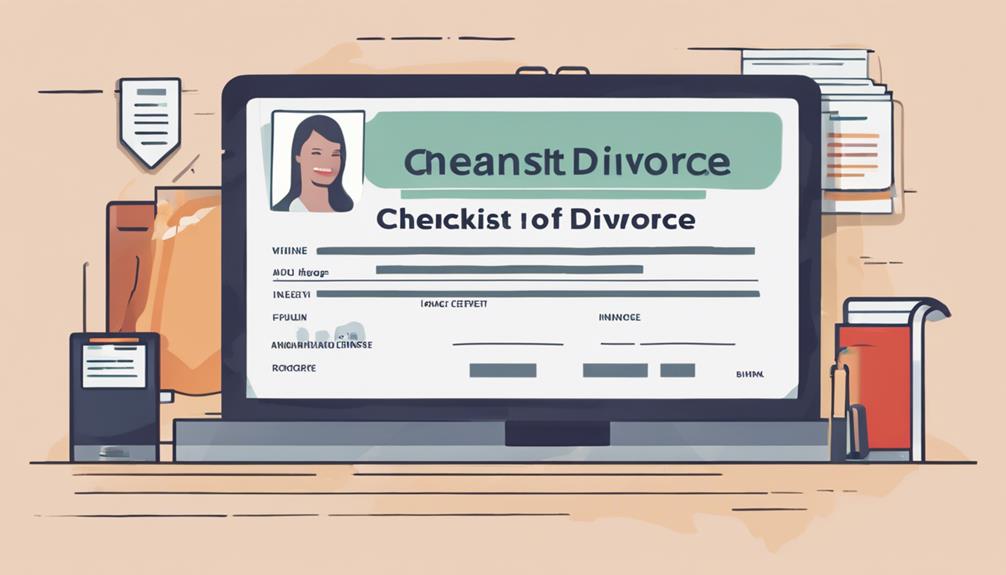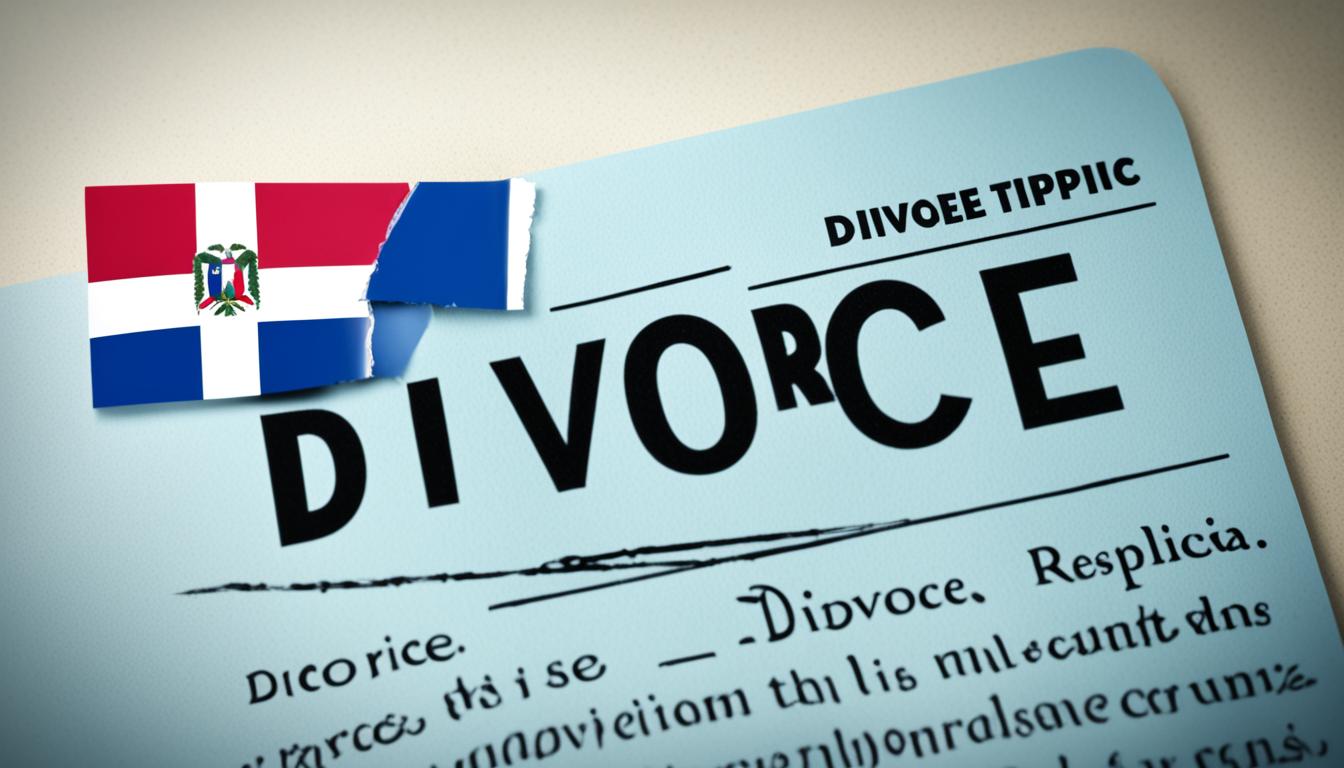In Indiana, the online divorce process offers a straightforward and affordable solution for couples seeking a no-fault uncontested divorce. By utilizing online divorce services, the necessary paperwork is simplified, providing a stress-free experience. Forms like the Petition for Dissolution of Marriage and Settlement Agreement can be conveniently filled out, ensuring a seamless process. This approach is especially beneficial for couples who are in agreement on all terms. For more information on simplifying your divorce in Indiana, additional details are available to help guide you through the process smoothly.
Key Takeaways
- Indiana's online divorce services offer a quick and stress-free uncontested divorce process.
- Required documents include Petition for Dissolution of Marriage and Financial Disclosures for asset division.
- User-friendly platforms provide guidance for efficient completion of necessary forms.
- Online divorce in Indiana is cost-effective and tailored for couples with agreed terms.
- Familiarize with filing fees, no-fault grounds, and use downloadable forms for a smooth process.
Online Divorce Filing Process
When filing for an online divorce in Indiana, individuals can complete the process in an hour or less through a straightforward question-answer format. By utilizing an online divorce service, couples can initiate an uncontested no-fault divorce without the need for legal representation.
DIY divorce has become more popular due to its convenience and cost-effectiveness, making it an attractive option for those seeking to dissolve their marriage amicably. In Indiana, the divorce process is simplified through online platforms that provide all the necessary divorce forms and guidance for filing a divorce petition.
This method of online divorce filing caters to individuals looking for a hassle-free solution to end their marriage without the complexities often associated with traditional legal procedures. The user-friendly nature of these services guarantees a smooth and efficient experience for those seeking to navigate the divorce process independently.
Required Documents for Online Divorce

In preparing for an online divorce, gathering the required documents is essential for a smooth and efficient process. When filing for an online divorce in Indiana, make sure you have the following key documents ready:
- Petition for Dissolution of Marriage: This document initiates the divorce process and outlines the basic information about the marriage and grounds for divorce.
- Domestic Relations Appearance Form: This form informs the court that you'll participate in the divorce proceedings and may include information about children or support.
- Settlement Agreement: This agreement details how you and your spouse plan to divide assets, debts, and responsibilities post-divorce.
- Financial Disclosures: Documents detailing each party's financial situation are important for equitable division of assets.
- Parenting Plans: If children are involved, a parenting plan outlining custody, visitation schedules, and child support must be included.
Ensuring accurate completion and timely submission of these documents is important for a successful online divorce process in Indiana.
Benefits of Online Divorce in Indiana
Online divorce services in Indiana offer a dependable and cost-effective solution for individuals seeking to dissolve their marriage efficiently. With a court approval guarantee, individuals can benefit from a stress-free process that assures their divorce will be approved or receive a refund.
Compared to traditional legal services, online divorce in Indiana is a cost-effective option, making it accessible to those looking for a more affordable way to end their marriage. The user-friendly and efficient forms provided by online divorce services cater to individuals abroad or in the military, allowing them to navigate the process quickly and hassle-free.
Completing the necessary forms can take an hour or less through a straightforward question-answer process, eliminating the need for an attorney. Overall, online divorce in Indiana offers a quick and convenient alternative to the traditional divorce process, making it an attractive option for those seeking a streamlined and efficient way to move forward with their lives.
Online Divorce Vs. Traditional Process

Contrary to the conventional method, opting for online divorce presents a modern and efficient alternative for those seeking a streamlined dissolution of marriage.
- Online divorce in Indiana allows individuals to file for divorce without the need for extensive legal assistance, simplifying the process considerably.
- Indiana law permits online divorce for cases where couples agree on all issues, such as child support obligations and division of marital property.
- The online divorce process in Indiana is tailored for situations where there's an irretrievable breakdown in the marriage, making it a suitable option for those seeking a quick resolution.
- Self-Service Legal websites offer accessible resources for individuals looking to navigate the online divorce process independently, saving time and money.
- Compared to the traditional process, online divorce in Indiana streamlines the paperwork and procedures, providing a cost-effective and efficient solution for couples seeking to end their marriage amicably.
Tips for a Smooth Online Divorce
For a streamlined online divorce process in Indiana, consider these practical tips. To begin with, acquaint yourself with the filing fees required by the Indiana courts for an online divorce. Knowing the costs upfront can help you plan your budget accordingly.
Next, understand that Indiana offers a no-fault ground for divorce, which means you don't need to prove fault to dissolve your marriage. This simplifies the process and reduces conflict.
Additionally, if you and your spouse can agree on terms like division of property, child custody, and support, opt for an uncontested divorce. This can greatly speed up the process.
Take advantage of the simplified online process by utilizing downloadable forms available online. This ensures you have all the necessary paperwork ready for submission.
Frequently Asked Questions
How Long Does Online Divorce Take Indiana?
An online divorce in Indiana generally takes 2-3 months to finalize, depending on court factors. It's often quicker than traditional methods due to streamlined procedures. Online services provide guidance for efficient form completion, offering convenience and cost-effectiveness.
What Is the Easiest Way to Get a Divorce in Indiana?
The easiest way to get a divorce in Indiana is to opt for online services. It simplifies the process, saves time, and is cost-effective. Individuals can complete the necessary forms within an hour, making it hassle-free.
What Is the Cheapest Way to File for Divorce in Indiana?
For a pocket-friendly way to end a marriage in Indiana, hitting the online route proves a budget-friendly choice. Online platforms offer divorce filings as low as $139, making it the most cost-effective option in the state.
How Much Does a Simple Divorce Cost in Indiana?
A simple divorce in Indiana typically costs between $150 to $500 in filing fees. Additional expenses for document preparation, legal aid, and mediation services may vary based on individual needs and circumstances, allowing for cost-effective dissolution solutions.
Conclusion
To sum up, maneuvering the streamlined online divorce process in Indiana can save time, money, and stress. By collecting the necessary documents, leveraging online resources, and adhering to the detailed guidelines, couples can simplify their divorce proceedings.
The advantages of online divorce compared to the conventional process are clear, making it a feasible option for many individuals. Keep in mind, preparation and patience are essential for a seamless online divorce experience.










